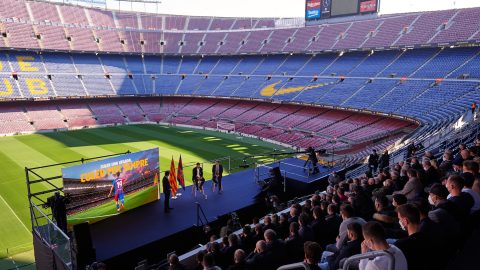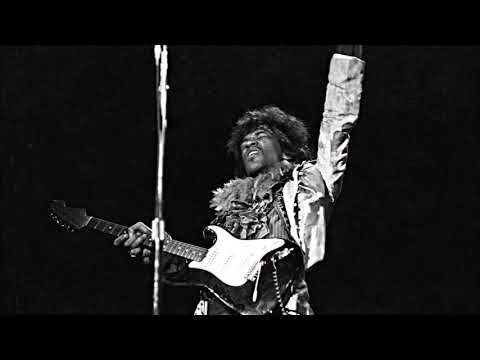
Late in 2020, Bristol’s SCALPING told NME of their untraditional and admin-heavy approach to writing music. “We over analyse everything, are super organised and admin-heavy, nothing’s an accident, everything’s massively considered and thought through,” electronics player Alex Hill said at the time, with bassist James Rushforth confirming: “We write songs on spreadsheets.”
At the time, the band seemed at ease with – and almost proud of – this somewhat detached, clinical form of songwriting. You can’t entirely blame them either, as they had created a deliciously daring signature sound with these methods, where crunching metal and fizzing techno met at a cutting-edge intersection, gaining the four-piece fans inside nightclubs and smelly rock basements.
Speaking now, a month ahead of the release of their debut album ‘Void’ (due April 29), created entirely during lockdown, their opinion may have changed slightly. Across 2020 and 2021, the band worked tirelessly on the record while never playing a note of it in the same room together, meaning the live band element of their make-up took a back seat. The band’s production-heavy and tech-savvy outlook could have made this a breeze, but in taking one of their two core elements away, they realised how vital the tangible touch and crunch of a guitar, bass or snare drum was to what SCALPING is.
“I still marvel at how long it took us to make this album,” Hill says today from his home in Bristol. “I don’t think we’ll ever make a record in this way again, without being in the same room at all,” drummer Isaac Jones adds, seeing ‘Void’ as “a demonstration of that method of making a record, and it was interesting for us to see what came out of it and then it gives us the opportunity to move into a new space next.”
“It really highlighted the ‘band’ thing,” Jones affirms. “The album was made how an electronic producer would make a record, and was done entirely within the computer. Going through that process, we realised that this is a band, and it works best as a band.”
A world with no lockdowns would have also saved the band a bucketload of gruelling hours hunched over the computer, according to Hill. “We spent so long trying to do something on the computer that would have just been there immediately if we played it live without you even trying,” he explains. “There is so much technology that has been made to try and emulate the feeling of something being live, when you can just play it instead.”
While these situations could have seen the band cut corners and create a limp, disconnected first full-length – or abandon it altogether – instead they simply put in the hours required and ended up at the desired destination by whatever means necessary. After months of toiling away, the mixing of the record was only completed in the van while they were on the way to get it mastered.
“It was a double-edged sword,” Hill reflects of the process. “It was shit because we couldn’t be together, but it was the only moment in the history of the band where we could have had the time to make an album.”
‘Void’ allows SCALPING’s sound to stretch out further into fascinating new territories. While early singles ‘Chamber’, ‘Deadlock’ and ‘Monolithium’ introduced the band to the world with unrelenting intensity as techno and metal combined, ‘Void’ sees these worlds melt together in subtler, more nuanced ways.
Take ‘Cloak & Dagger’ as an example, a song that brings a lighter touch to the band’s trademark gloom. The track is punctuated with chiming post-rock guitars that recall Mogwai, who the band recruited last year to remix their track ‘Cloudburst’ from debut EP ‘Flood’. First single ‘Flashforward’ is also a change of pace, with dream-like vocal samples giving the track an airy quality.
Guest vocalists also appear on SCALPING songs for the first time, with Oakland rapper DÆMON stealing the show on single ‘Tether’ with a brooding and characterful performance. Bristol’s Grove then hops on album closer ‘Remain In Stasis’ with a charismatic, chant-like vocal.
The band have said they want their live performances to flowl like DJ sets, with a slowly rising tempo across the gig and immaculately telegraphed transitions between tracks; at their shows, the music never falls silent from the first beat to last. On ‘Void’, the music also travels through specific, deliberate moods. Early highlight ‘Caller Unknown’ is an absurdly heavy onslaught of sludgey guitars, but the harsh electronics they rub up against sound picked from the late SOPHIE’s hyperpop playbook. It’s a record that has all the intricacies and fascinating minutiae of a knob-twiddling electronic album, but manages to grasp the tangible thud and smack of live instruments and rock bands, even when created during a time when they’d never felt further away.
It’s in their live show that SCALPING become their fully formed selves though, they tell us. “When people come and see us live,” Rushforth says, “I hope they see that we’re trying to subvert even our own album. That’s the point that we have to prove – there is this space that exists that we’re going for and not many other people try to reach. It’s making stuff blend into each other and taking the mindset of a DJ or producer and applying it to live instruments. It’s not gonna change the world, but it’s funny how little it’s been exploited.”
It often seems like SCALPING are a band wrestling with their two identities, desperately trying to overcome the limitations of their tools but unable to live without either side of their sound. Though it might take months of sweat and toil to make, when these two elements collide together it makes a sound like no other, resulting in a noise that’s pushing both guitar music and electronic music forwards simultaneously.
“Although the instruments we play are traditional, we’re not playing them in a traditional way,” says guitarist Nick Berthoud. “These traditional band instruments aren’t made to be played in the context we want them to be, or to play the kind of music we want them to.” That’s not a reason to abandon their instruments, though – instead, the focus is on changing their way of working and making them serve the SCALPING sound. “There’s a huge focus on pushing what [their instruments] can do, taking them to places that a traditional bassist or guitarist wouldn’t want to take them,” he adds. “The guitar itself is nothing special, but you can work out a way to make it do more.”
On ‘Void’ and at the band’s one-of-a-kind live shows, the guitar, bass and drums anchor their sound within traditional frameworks, but rule-breaking is in SCALPING’s DNA, and the music they make sounds like the future.
SCALPING’s debut album ‘Void’ is out April 29 via Houndstooth
Radar Roundup: sign up and get our weekly new music newsletter
The post SCALPING: rave-ready bangers from Bristol techno-metal heavyweights appeared first on NME.








